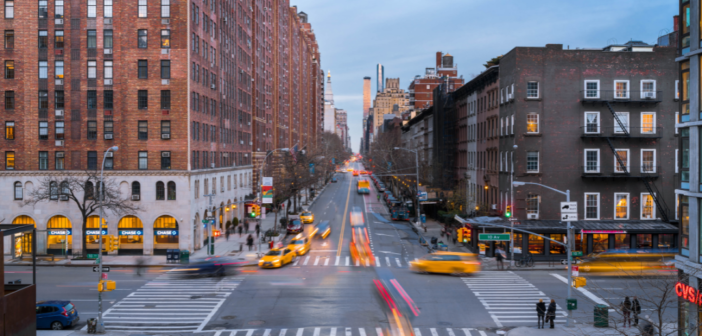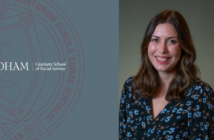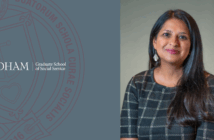One of the foundational missions of the Graduate School of Social Service is to promote human rights and social justice and to advocate for change. Furthermore, collaborating with organizations and communities to engage, empower, and elevate voices is vital to supporting that change.
In 2018, the Ravazzin Center on Aging and Intergenerational Studies at Fordham GSS partnered with Goddard Riverside Community Center—one of NYC’s leading human services organizations, serving over 20,000 people—to do just that.
Over the course of the following year, the two organizations collaborated to conduct a community assets and needs assessment at Amsterdam Houses and the Amsterdam Addition public housing development, operated by the NYC Housing Authority. The study aimed to “understand the specific needs of community residents by engaging their collective voices through a formal process utilizing a mixed methodological research approach.”
Ravazzin Center Chair and Fordham GSS Professor Janna Heyman, Ph.D.; Associate Professor G. Lawrence Farmer, Ph.D.; and Ravazzin Center Research Director Henry Davis, Ph.D. led the effort.
“This work is so important,” Heyman said. “This is right in our backyard. Our student interns are here and helped with our project, as well. This is what universities need to do to understand the local communities and help in whatever way they can.”
And according to Susan Matloff-Nieves, Vice President for Innovation and Justice at Goddard, this partnership was more than just a study. It was a mutual, holistic benefit for the whole community.
“This has developed beyond the usual already substantive relationship. Working with an academic institution to gather community voices really pushes us forward,” Matloff-Nieves said. “And Fordham didn’t just say, ‘hey, we want to study your people’, which can become an issue. They said, ‘We’d like to use your site, and here’s what we’re going to give back to the organization and the community.’”
The reciprocation was based on a shared desire to understand the aspirations of community members. For Goddard, the study enabled organization leaders to understand how to better serve the community in a way that aligns with a broad spectrum of residents. It has provided a basis for resource development and targeted programming. Participants in the study were rewarded for their time with a gift card. Past efforts with the Ravazzin Center team have included staff training and a financial stipend.
“There’s a sensitivity the Ravazzin Center brings to not objectifying people when they’re engaging in research,’ Matloff-Nieves continued.
The Research Study
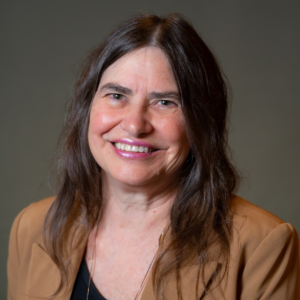
Janna Heyman
Fordham’s Lincoln Center campus shares a street with the Amsterdam Houses and Addition, which are located between W 61st and W 65th streets. Heyman said that despite the proximity, the project required extensive preparation to ensure a smooth process—and that the time the group spent made all the difference. Although a large lift, Heyman credits a rigorous planning process for the research’s success.
“The planning process was labor-intensive,” she said, “and that’s why it was a success.”
The needs and assets assessment consisted of five focus groups composed of Amsterdam housing residents. Researchers asked participants to share their experiences and perceptions of two key components of life in the development :
- Living in the Amsterdam public housing buildings
- The community activities provided by Goddard Riverside’s Lincoln Square Neighborhood Center (LSNC), a settlement house community center located within the development.
The researchers then coded the group discussion transcripts to see what themes and trends emerged.
Five major themes emerged from the conversations:
- Yearning for home and community
- Appreciation for diversity
- Conditions supporting human dignity
- The continual growth of programs and affordability
- Emphasis on trust
One theme that was stressed by all residents, Heyman and Farmer said, was the desire for a sense of community. Residents wanted the Amsterdam Houses to be a home, not just a place to live.
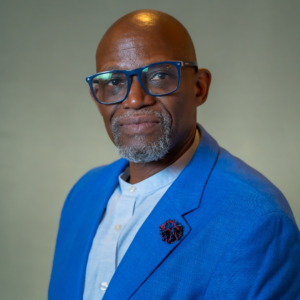
Larry Farmer
“The residents spoke highly of the outdoor events they’d have in the summertime, like block parties and barbecues,” Farmer said. “They were yearning for that, but the lack of physical care of the building damaged their ability to have these outdoor events.”
“The research didn’t intend to talk about the living conditions. It just came up,” Davis said. “That’s the importance of empowering the voices of the residents. Things are interconnected, and there’s an intricacy to it.”
“The yearning for community jumped out,” Heyman said. “The residents wanted to be a vibrant community, and more than just a living environment—a home for everyone.”
A Multigenerational Approach
Working through the lens of Fordham’s Ravazzin Center on Aging and Intergenerational Studies, a large focus of the study was to explore how residents across generations interact within the Amsterdam Community and how that interaction can help further instill that sense of community. In fact, Heyman noted, this study was unique in its approach—including more generations than is typical for a research project such as this.
“We wanted to explore different models of reaching all generations,” Heyman said. “There are lots of models focused on two generations, but in this research, we focused on three or more generations.”
The saying, we don’t know where we’re going if we don’t know where we’ve been seems to hold true here. Multigenerational input is vital for progress, as older generations have seen what can work and what needs to be improved. However, older voices can sometimes get lost or unheard, especially in an individualistic nation such as America.
Farmer said the diversity of voices should be cherished.
“The diversity gave us a chance to hear a lot of the history of that community, the changes the older adults saw over time, and how those changes impacted younger adults in the community,” he said. “We didn’t get a snapshot of just one point in time with this study. We learned what the needs were and how those needs have changed.”
“Sometimes older adults’ voices don’t get heard,” Heyman said. “When we had our bi-monthly discussions before embarking on the study, we decided we wanted to hear from older adults, parents, and youth.”
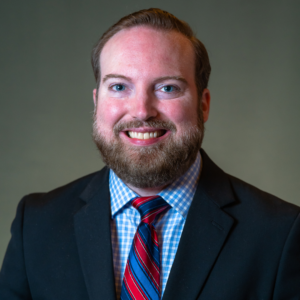
Henry Davis
And the older adults they interviewed, Farmer said, weren’t stuck in the past. In fact, he continued, for people who had their own struggles and difficulties, the older adults had an intense commitment to the next generation and making sure those who came after them had the opportunity to thrive.
“They spoke about education and job support,” Farmer said, “and what they saw were the continuing needs of the younger generations.”
Davis noted, “There’s a need to support individuals going through career development. The community center looks to address those issues and support these individuals financially and socially.”
“Talk about being wise and having a vision,” Heyman said. “I was touched by the older adults’ desire to make sure there are jobs available for younger individuals. They saw a vision for the future.”
Matloff-Nieves said what impressed her was the delicacy with which the researchers implemented the project and the focus on empowerment instead of “fixing”.
“Part of what I really enjoyed about working with the Fordham team was their understanding of strength-based community,” Matloff-Nieves said, “as opposed to, ‘We’re going to solve all of your problems.’ It’s much more impactful.”
Modeling for the Future
The Ravazzin Center and Goddard Riverside also have a vision for the future. The results of the Amsterdam Houses study have since been used to inform program development targeted to resident interests and build community at Goddard Riverside’s Lincoln Square Neighborhood Center.
The goal is to expand these intergenerational programming frameworks into models that can improve life for housing residents nationwide.
“Goddard Riverside has committed to really thinking outside the box about how they can address a multitude of situations and issues that arise in these communities,” Heyman said. “This study wasn’t just about understanding needs, but also recognizing the community’s assets and strengths.”
The combination of assets and innovations emerging from this research will benefit many community organizations as the multigenerational frameworks are developed and expanded. Heyman and Farmer have just received two additional grants from Goddard Riverside to further the collaboration
“We’ll be working with Fordham and the Ravazzin Center to begin to look at the agency culture and the skill sets that our staff needs to develop. It’s very exciting,” Matloff-Nieves said. “This is really deep-level engagement because we’re not just talking about a student here and there. We’re really working with our whole agency to build a mindset around looking at family economic mobility.”
The Ravazzin Center and Fordham GSS faculty will assist in producing the training, which Matloff-Nieves thinks will provide a more holistic approach to the settlement house staff and client experience.
“At Fordham, there’s a real commitment of resources to the community, and that’s unusual,” Matloff-Nieves said. “We’re using the knowledge and wisdom of the University to improve people’s lives directly. It’s not your typical level of investment.”
